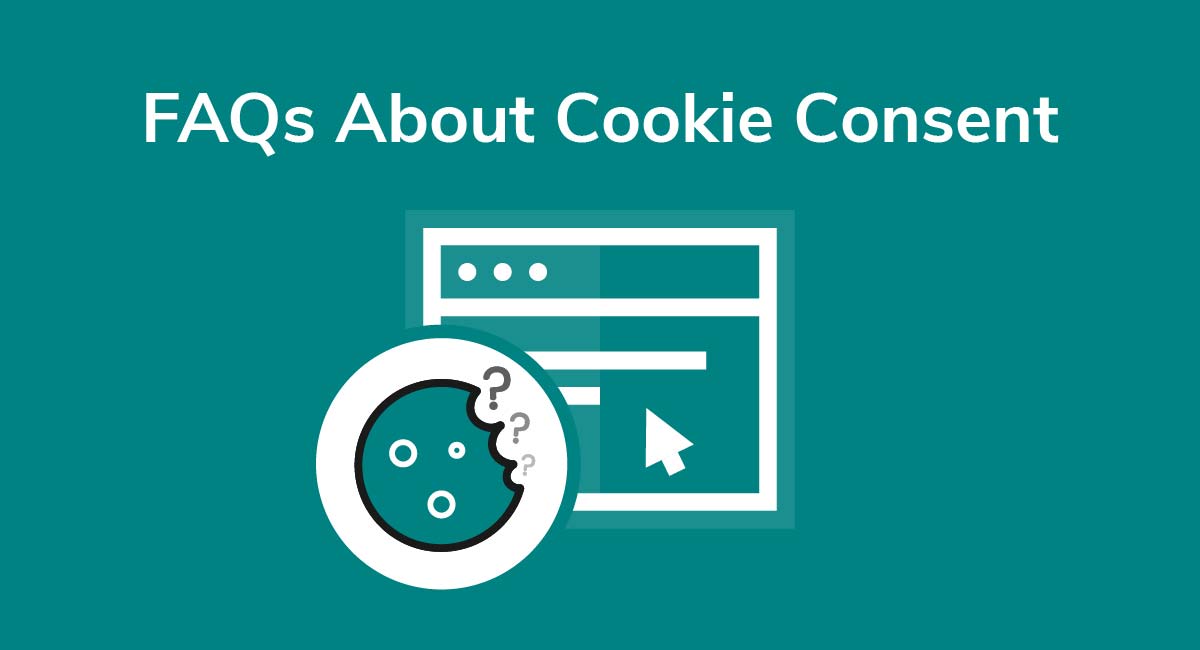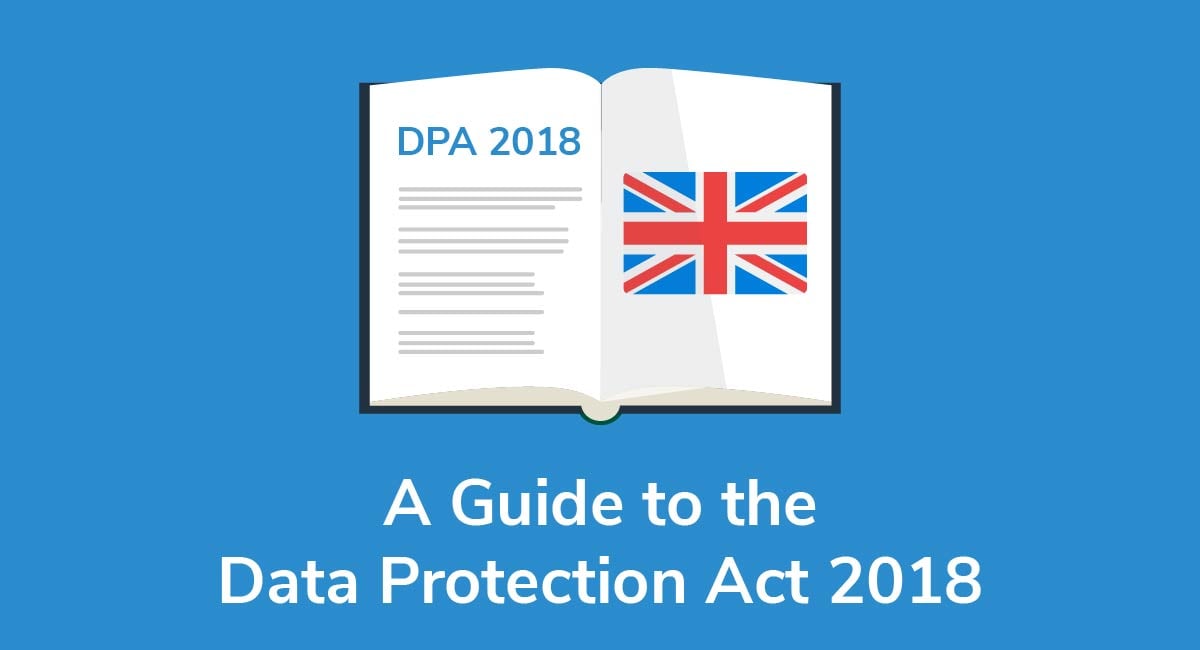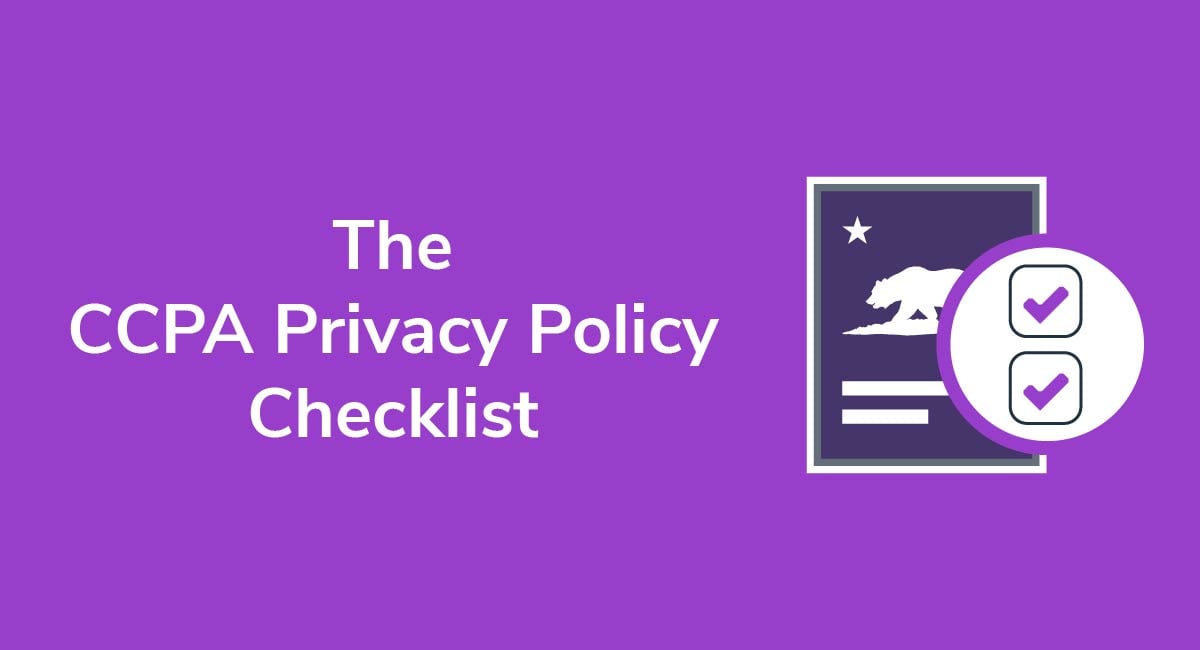Video: Are Privacy Policies Required?
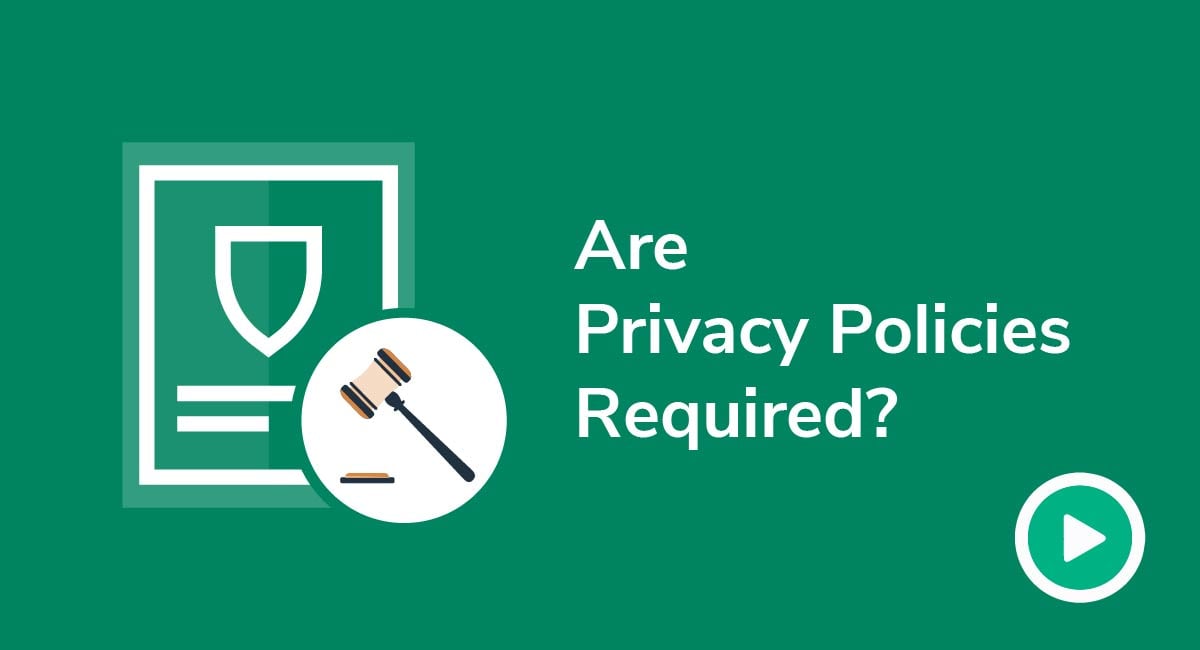
What is a Privacy Policy and am I legally required to have one? And if so, how can I make a Privacy Policy?
In today's video, we'll be giving you the answers to these questions, sharing some examples of privacy laws, what they require of you and more. So if you're interested in learning more, then stay tuned.
Hey everyone, it's Heleana here, and welcome to Privacy Policies, the place where you can generate custom-made Privacy Policies in seconds to help keep your business safe.
Why is a Privacy Policy important?
Privacy is such an important aspect of our lives, both on and offline. But when it comes to the expansion of the Internet and all the things we can do, see, purchase and experience online, privacy has become even more sensitive for both consumers and business owners.
As such, there are a number of privacy laws that affect businesses, websites and their operators worldwide. And that's why you might need to get a Privacy Policy set in place for your website.
But what is a Privacy Policy, exactly?
A Privacy Policy is a legal agreement that explains what kinds of personal information you gather from website visitors, how you use this information, and how you keep it safe.
If you collect personal data of any kind, such as:
- First and last names
- Physical addresses
- Email addresses
- Telephone numbers
- Social Security numbers
- Any other contact information shared with a business either physically or online
- Birthdates
- Details of physical appearance (such as height, weight, hair color)
- Any other information stored online that may identify an individual
...then you'll most likely need a Privacy Policy in place to keep your business and users safe.
We have an entire video dedicated to Privacy Policies where we go quite in depth on what it is and why you should have one.
Are Privacy Policies legally required?
There are many laws around the world that require websites to have a Privacy Policy in place.
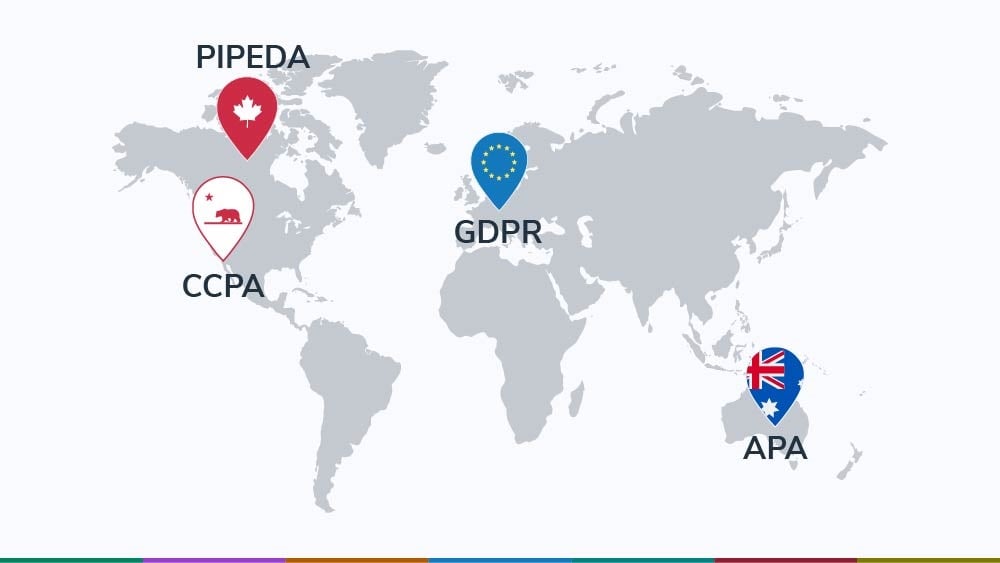
From California's CCPA, to the EU's General Data Protection Regulation (GDPR) and other laws in Canada, the UK and Australia, there is much to understand about privacy laws and compliance.
Let's jump a little deeper into each of these laws.
CCPA
The CCPA, or California Consumer Privacy Act, is one of the privacy laws in the United States. It affects anyone who collects personal information from people residing in California, which means its reach goes far beyond state borders. Its purpose is to provide protection of personal data collected from California residents.
GDPR
The EU's GDPR or General Data Protection Regulation requires all companies operating in the EU as well as foreign companies that handle personal data of people located in the EU to have a Privacy Policy. This is part of its goal to make sure personal information is both obtained and processed fairly.
For more information on the GDPR, check out the video linked in the description box below.
PIPEDA
Canada's Personal Information Protection and Electronic Documents Act (PIPEDA) protects personal data belonging to Canadian citizens and requires companies operating online in Canada to have a Privacy Policy.
As you can see, each country or region has its own set of laws regarding privacy protection and Privacy Policies.
Although each has its own twist, these various privacy laws from around the world share essential goals centered around protection and proper use of private consumer data.
Why you need a Privacy Policy
Privacy laws each vary in their own way, but one thing is certain:
If you collect private data of any kind and if you own or operate a website anywhere in the world, you likely need a Privacy Policy in place that complies with the laws in the jurisdictions where your website users live.
Besides collecting data yourself, you also need to be aware of requirements of third party services you use, such as analytics or advertising services like Google Adsense and Google Analytics that might collect data on your behalf.
Because of this, you should always check the Terms of Use for these services to find out what you need to do.
If you're curious about what a Terms and Conditions agreement is and the difference between a Terms and Conditions agreement and Privacy Policy is, we have an entire video dedicated to the subject.
More often than not, depending on where you and your target audience are located at, you'll be required by law to have a Privacy Policy in place if you collect private information of any kind from users.
What should a Privacy Policy include?
But what should you include in your Privacy Policy?
At a minimum, your Privacy Policy should include:
- Your official business name and contact information
- The types of personal data you collect from users, both directly and indirectly
- Why you collect their personal data
- How their data is used
- How you share that data with third parties
- How your users can opt out of data collection
Creating this simple legal document called a Privacy Policy will protect you and your business from any unwanted lawsuits.
If creating a Privacy Policy for your business sounds like a daunting task and you don't know how to start, we've got you covered. We have an easy-to-use Privacy Policy generator ready for you to use right now.
Need a Privacy Policy? Our Privacy Policy Generator will help you create a custom policy that you can use on your website and mobile app. Just follow these few easy steps:
- Click on "Start creating your Privacy Policy" on our website.
- Select the platforms where your Privacy Policy will be used and go to the next step.
- Add information about your business: your website and/or app.
- Select the country:
- Answer the questions from our wizard relating to what type of information you collect from your users.
-
Enter your email address where you'd like your Privacy Policy sent and click "Generate".

And you're done! Now you can copy or link to your hosted Privacy Policy.




To make your Privacy Policy, go to our website www.privacypolicies.com and use our Privacy Policy generator. Simply fill out your website's information and you'll have your agreements ready within 2 to 3 minutes. And the best part? It's all for free. Give it a try now!
We hope that you found this video on Privacy Policies helpful and informative.
If you have any more questions related to the topic that we didn't happen to touch on, please leave them in the comments below and we'll get back to you as soon as we can.
Thanks for watching, don't forget to subscribe so you can stay up to date with all our latest videos, and we will see you in our next video.
